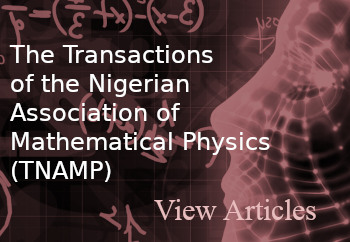EFFECTS OF METACOGNITIVE LEARNING CYCLE MODEL ON SECONDARY SCHOOL STUDENTS’ ACHIEVEMENT AND INTEREST IN PHYSICS.
DOI:
https://doi.org/10.60787/jnamp-v66-315Keywords:
Metacognitive Learning Cycle Model, Achievement, Gender And InterestAbstract
The Study investigated the effects of metacognitive learning cycle model on students’ achievement and interest in physics in secondary schools. Four research questions and four null hypotheses guided the study. The study used quasi-experimental design. The population of study comprised 924 SS2 Physics students in Izzi LGA of Ebonyi State. Simple random sampling techniques was used to select 65 students for the study. Physics Achievement Test (PAT) and Physics Interest Scale (PIS) were used for data collection. KR20 and cronbach alpha methods were used to establish the reliabilities of instrument which yielded 0.82 and 0.73. Pretest post-test were used on the students. The research questions were answered using Mean while ANCOVA was used to test hypotheses. Findings revealed among others that metacognitive learning cycle model has significant effect on students’ achievement and interest in physics. Based on findings, the study recommends that physics teachers should redesign their teaching methods.
Downloads
References
Achufusi-Aka, N.N. (2011). Effect of Metacogition in a field trip physics program (on machine) on academic achievement of physics Student. Unizik Journal of STM Education, 2(1).Ifevic publishers limited, Oba, Anambra State –Nigeria.
Anderson, C.W. (2012). Teaching Science in Y- Richard –Kochler. The educator handbook. A research perspective New York. Longman 84-111
Bianchi, G. A. (2007). Effect of metacognitive instruction on the academic Achievement of Students in Secondary Science cognitive Psychology: science education: curriculum development, 3272507.
Blank, L.M. (2000). A metacognitive learning cycle: A better warranty for Student understanding Science Education 84(4) 486-506
Busolo, J.A (2010). Gender differences in students’ achievement in chemistry in secondary schools of Kakamega District, Kenya.International journal.
Daniton M. (2012) Role of Science and Technology in Educational Development. Nigeria Journal of Educational Development.Nigeria Journal of Educational Research 5(3) 30-34 Horden Publisher Ltd Benin
Federal Republic of Nigeria (FRN) ( 2010) National policy on education (4th edition) Lagos, NERDC Press.
Godpower- Echie, G &Ihenko, S (2017) Influence of gender on interest and academic achievement of students in integrated science in Obio Akpo- Rivers state, Nigeria. European scientific journal Vol.13 No 10 P 262.
Hidi,S. Renninger,A. &Krapp.A(2014).Interest,a motivational variable that Combines affective and cognitive functioning. In D. Y Dai & R.J. Sternberg (Eds) motivation, emotion, and cognitive. (pp 89-115) Mahwah, NJ. Lawrence Erlbaum
Igwe, I .O (2006) Gender imbalance in students achievement in chemistry. The Team assisted instruction strategy to rescue Ebonyi State journalof Education, Timex publishers, 29, Ogui Road Enugu.
Marrison C.O (2008) The Purpose of Teacher Education in Developing Africa WAJE Vol. xv No. 3 Hopkins Press Lagos.
Nwosu, B.I (2004) Effects of metacognitive training in strategic questioning on students’ achievement, interest and retention of biology concepts.Unpublished Ph.D work, NnamdiAzikiwe University Awka, Anambra.
Offiah, F.C. & Akusoba, E.,U .(2009). Effectiveness of metacognitive Learning cycle to science instruction for secondary School chemistrystudents.Unizik journal of STM Education 1(1) ifevic publisher limited Anambra State Nigeria.
Okeke P.N (2002) Electromagnetism and Modern Physics Nigeria University Physics Series 2nd Edition. Nazareth Press Ltd, Ibadan.
Onyedike, C.C.(2011). Effects of metacognitive classroom environment on Students ‘ academic achievement and self- regulation learning skills of senior secondary school students. Unpublished Thesis Unizik
Owolabi T. (2014) A Diagnosis of Students Difficulties in Physics. Educational Perspectives 7: 15-20.
Sansone, C, Wiebe, D.J.,&morgan, C. (1999). Self-regulating interest The moderating role of Hardiness and Conscientiousness. Journal of Personality 61, 701-733
Ugwu G.Z (2004) Modern Physics Revised Edition. John baz Publisher, Ibadan.
Wenno, H.I (2015) The correlation study of interest at physics and knowledge of mathematics basic concept towards the ability to solve physics problems of 7th grade students at Juniour High School in Ambon Maluku province, indonesia. Educational Research International Vol.1, 2015 P.6
West African Examination Council (WAESC) (2014).International Journal of Education and Research 10(2): 407- 416.
Downloads
Published
Issue
Section
License
Copyright (c) 2024 The Journals of the Nigerian Association of Mathematical Physics

This work is licensed under a Creative Commons Attribution-NonCommercial-ShareAlike 4.0 International License.




